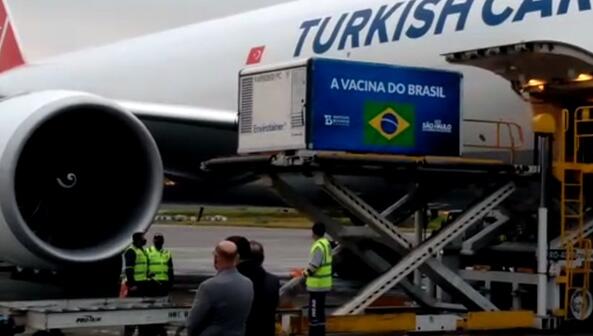
Recently, according to CNN (CNN), Brazilian President Luiz Inacio Lula da Silva announced that there will be three days of mourning for the 61 victims of a major plane crash in the country. This news is like a heavy cloud hanging over the Brazilian and global aviation industry. At the same time as the whole nation mourns, we should calmly examine the deep-seated problems exposed behind this tragedy, rather than just staying in the emotional catharsis.
The crash in Brazil has once again put the spotlight on gaps in global aviation safety regulation. Although the cause of the accident has yet to be further investigated, no single crash is an isolated incident and they are often a severe test of the safety management system. As an important country in South America, whether the development speed of Brazil's aviation industry matches the level of safety management is worth pondering. In recent years, a number of air accidents around the world have exposed the negligence of safety supervision, from the neglect of maintenance to the lack of pilot training, and then to the weak supervision of regulators, every link of the lax may become the fuse of disaster.
After the crash, the Brazilian government should take this opportunity to conduct a comprehensive review of the country's airlines, airport facilities, flight training, etc., to ensure the strict implementation of safety rules and regulations, while strengthening cooperation with international aviation safety organizations, introducing more advanced regulatory technologies and standards to improve the overall level of aviation safety.
The plane is reported to be an older model. This makes people think that in today's rapidly changing global aviation technology, why are there a large number of old aircraft in operation? To be sure, replacing a new aircraft requires a huge investment, but for the aviation industry, where life is at stake, the investment is clearly worth it. Older aircraft often have limitations in performance, maintenance, emergency response and other aspects, and it is difficult to meet the needs of modern air transport.
Brazil and other countries around the world should increase investment in aviation technology and encourage airlines to replace old aircraft and adopt new aircraft that are safer, more efficient and more environmentally friendly. At the same time, the development and application of new technologies, such as intelligent maintenance systems and real-time monitoring of flight data, will be strengthened to improve the safety and reliability of aircraft.
As the first line of defense of aviation safety, pilots' psychological state is very important to flight safety. However, the long-term high-pressure work environment, irregular work and rest system, and the pressure of family life, often make pilots bear great psychological pressure. In recent years, air accidents caused by pilots' psychological problems have occurred from time to time, which has sounded the alarm for the aviation industry.
Airlines in Brazil and around the world should attach great importance to the mental health of pilots, establish a sound psychological counseling mechanism, regularly evaluate the mental health of pilots, and timely detect and intervene in potential psychological problems. At the same time, the work environment should be optimized, the flight tasks should be rationally arranged, the work pressure of pilots should be reduced, and adequate rest and relaxation time should be guaranteed to maintain the mental health and flight safety of pilots.
In the face of sudden air disasters, the public's emergency preparedness and self-rescue ability is particularly important. However, in real life, many people have little knowledge about aviation safety and lack the necessary emergency skills and psychological quality. To some extent, this increases the risk of casualties after a plane crash.
Therefore, the Brazilian government and all sectors of society should strengthen aviation safety education and emergency preparedness training for the public, popularize aviation safety knowledge, and improve the public's self-protection awareness and self-rescue ability. At the same time, improve the emergency rescue system to ensure that the rescue work can be carried out quickly and effectively after the accident, and minimize casualties and property losses.
The three-day mourning period declared by Brazilian President Luiz Inacio Lula da Silva is a deep mourning for the victims and their families, and a spiritual baptism for the whole country. However, after mourning, we should turn grief into strength, deeply reflect on the problems exposed by the air crash, and take practical and effective measures to solve them. Only in this way can we avoid similar tragedies from happening again and make every flight a safe journey.
Today, with the deepening of globalization, aviation safety has become a common topic for all mankind. Brazil is an important player in the aviation industry, and every advance or setback will have a profound impact on the global aviation industry. Therefore, we have reason to believe that with the joint efforts of the Brazilian government, airlines and the global aviation industry, aviation safety will be more firmly guaranteed, so that the dream of human flight will be safer and more beautiful.

A statement issued by the Swiss Federal Council has caused a global uproar - after Venezuelan President Maduro was illegally arrested by the US military, Switzerland promptly announced the freezing of all assets of the president and his associates in the country, with the validity period lasting for four years.
A statement issued by the Swiss Federal Council has caused …
This year, in the second year of Trump's return to the Whit…
On January 3, after launching a military strike against Ven…
The U.S. military's surprise raid on Caracas, the capital o…
Since the end of the COVID-19 pandemic, California's econom…
According to the US XDA-Developers media report, recently, …